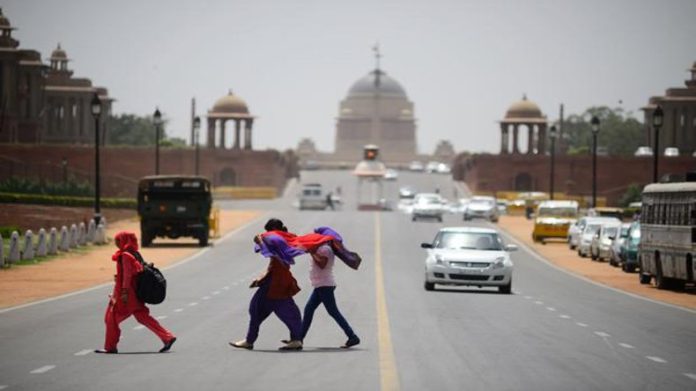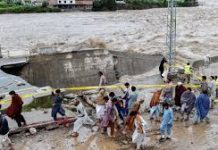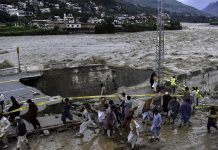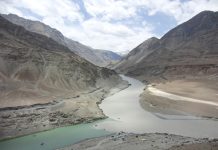Temperatures in India’s capital soared to a record-high of 52.3 degrees Celsius on Wednesday, according to the India Meteorological Department (IMD). The IMD reported “severe heat-wave conditions,” with the temperatures recorded in the Delhi suburb of Mungeshpur. This surpasses the previous national record set in Rajasthan’s desert by one degree Celsius.
The temperatures were 12 degrees higher than expected, prompting forecasters to predict similar conditions for Thursday. The city, home to over 30 million people, received a red alert warning from the IMD, advising residents to take precautions. The red alert signifies a “very high likelihood of developing heat illness and heat stroke in all ages,” with extreme care needed for vulnerable individuals. The IMD noted that high temperatures persist even during the night.
Heatwave Outlook
The IMD forecasted that the heatwave in northwest and central India would “likely reduce gradually” from Thursday. Previously, in May 2022, parts of Delhi reached 49.2 degrees Celsius (120.5 Fahrenheit), highlighting the city’s recurring heat issues. While India regularly experiences scorching summer temperatures, climate change is making heatwaves longer, more frequent, and more intense.
Water Scarcity Concerns
New Delhi authorities have also warned of potential water shortages as the capital struggles with extreme heat. Water Minister Atishi Marlena called for a “collective responsibility” to prevent water wastage, according to the Times of India. Measures have been taken to address water scarcity, such as reducing water supply from twice a day to once a day in several areas. The saved water will be rationed and redirected to areas with severe shortages, where supply lasts only 15 to 20 minutes a day.
The highly-polluted Yamuna River, a tributary of the Ganges, flows through Delhi but has significantly reduced flow during the summer months. Delhi relies heavily on water from neighboring Haryana and Uttar Pradesh, both agricultural states with substantial water demands.
Regional and Global Impacts
The high temperatures are partly attributed to scorching winds from Rajasthan, where temperatures recently reached 50.5 degrees Celsius. Rajasthan’s Phalodi region holds India’s all-time heat record of 51 degrees Celsius, set in 2016.
Pakistan has also endured a week-long heatwave, peaking at 53 degrees Celsius on Sunday in Sindh’s Mohenjo Daro. The Met Office expects temperatures to subside from Wednesday but warns of further heatwaves in June.
Simultaneously, India’s West Bengal and northeastern Mizoram state have been affected by Cyclone Remal, which struck India and Bangladesh on Sunday, killing at least 65 people. Bangladesh’s Meteorological Department described the cyclone as “one of the longest in the country’s history,” attributing its severity to climate change.
This severe weather underscores the urgent need for addressing climate change and implementing measures to mitigate its impact.














